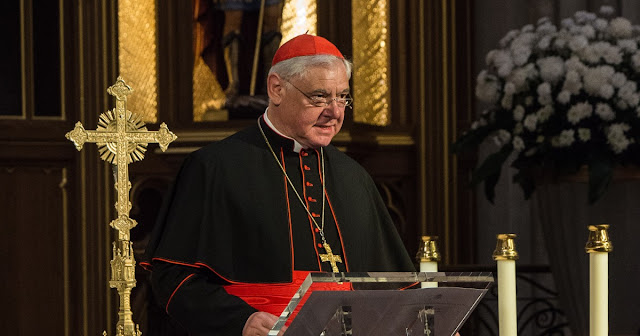In new statement, Cardinal Müller proclaims “the worldwide negative reaction from large parts of the world episcopate” to Fiducia supplicans
Cardinal Müller responds to KATH.NET press inquiry: “There is nothing to tamper with the definitive declaration of Vatican II: 'The Magisterium is not above the Word of God, but serves it by teaching nothing other than what has been handed down...'"
The Prefect Emeritus of the Congregation for the Doctrine of the Faith, Gerhard Ludwig Cardinal Müller, answers exclusively to the kath.net press query:
kath.net: Cardinal Müller, has anything changed in terms of content with the latest statement from Cardinal Fernández?
Cardinal Müller: I have nothing to add to my comment on Fiducia supplicans. The global negative reaction from large parts of the world episcopate and from leading laypeople to the “recommendation for action on the private blessing of people in sinful partner relationships” issued by the Dicastery for the Doctrine of the Faith should give those responsible in Rome something to think about. But just two points for further clarification:
1. The distinction between liturgical-official blessings and the private-pastoral blessings of non-marital sexual partnerships remains problematic for me. The proposed 15-second blessing with the sign of the cross and the invocation of the name of the Father and the Son and the Holy Spirit is described there as a private prayer for the assistance of God, who always wants our turning away from sin and our eternal salvation. Any layperson can say this prayer over others. The priest, however, must be careful that his blessing in the name of the Church is not exploited by secular-ideological and ecclesiastical-heretical pressure groups who are only concerned with undermining the truth of the revealed faith (in the teaching and practice of the Church, which one does not can play against each other).
2. The most problematic point does not seem to me to be the (obvious) pastoral concern for the salvation and openness to God of people in irregular sexual partnerships or those that - corrupted by LGBT ideology - view Christian marriage theology as outdated not in a way that is hostile to the body, but rather in the claim of “a real development beyond what was said by the Magisterium and in the official texts of the Church about the blessings” (Declaration No. 4).
The teaching office of the Pope and Bishops can in no way be assigned an authority by a Roman Dicastery - even with reference to the personal will (in freedom of will) of the current reigning Pope - that has been issued once and for all in Christ and is contained in the “Doctrine of the Apostles” ( Acts 2:42) to supplement, reduce, correct or make compatible with everyday understanding or current ideologies the normatively presented revelation for all time. The two papal dogmas of Vatican I (infallibility, jurisdictional primacy) do not provide such an interpretation that would go beyond the hermeneutics of the Catholic faith; in fact, they outright contradict it. There is nothing to tamper with the definitive declaration of Vatican II: “The Magisterium is not above the Word of God, but serves it by teaching nothing other than what has been handed down, because it teaches the Word of God by divine commission and with the assistance of the “It hears the Holy Spirit with reverence, keeps it holy and interprets it faithfully, and because it draws everything that it presents to believe as revealed by God from this one treasure of faith.” (Dei verbum 10). The Gnostic opinion that a small leadership elite has special access to the Holy Spirit or that mythologically the Holy Spirit speaks through the “healthy people of intellectually uncorrupted common people” (the “people's spirit” of the Romantics) has nothing to do with the Catholic faith . There is only one treasure of the Word of God, contained in Holy Scripture and fully preserved and faithfully interpreted in the context of the Apostolic Tradition by the whole Church under the guidance of the Holy Magisterium (cf. Dei verbum 1-10; Lumen gentium 25 ).










.jpeg)

Comments